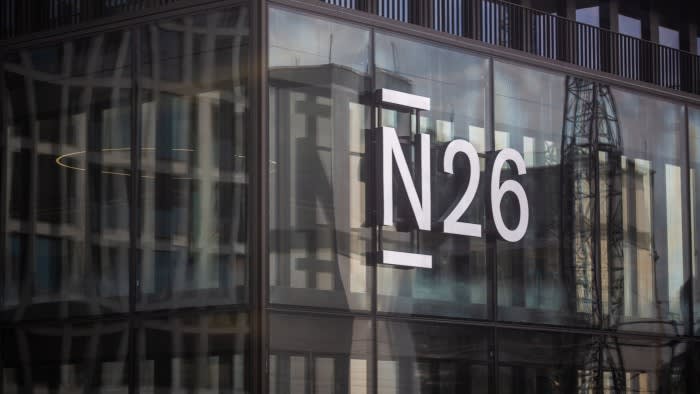Fintech N26 says regulatory action cost it ‘billions’ in lost growth

Unlock the Editor’s Digest for free
Roula Khalaf, Editor of the FT, selects her favourite stories in this weekly newsletter.
Years of regulatory action against German fintech N26 for its poor anti-money laundering controls may have cost the business billions of euros, co-founder Valentin Stalf told the Financial Times, as authorities finally remove a cap on its growth.
Financial regulator BaFin in 2021 ordered online-only bank N26 to limit its new client sign-ups to 50,000 a month, compared with the average 170,000 a month it was taking on at the time. The cap was increased to 60,000 last year and it will be removed from June, according to N26. BaFin declined to comment.
The regulator disclosed last week that it had fined the bank €9.2mn for the persistent late filing of suspicious activity reports in 2022. This followed an earlier fine of €4.25mn in 2021 for similar problems in previous years. An independent monitor that oversees N26’s anti-money laundering controls on behalf of BaFin will remain in place, according to people familiar with the situation.
N26 said on Tuesday that the direct costs of the saga added up to €100mn, including spending on its control functions and monitoring systems, and the fines. But co-founder Valentin Stalf told the FT that the indirect costs were much higher.
“The impact on N26 surely amounts to billions of euros because it lowered the company’s valuation as we were unable to grow,” he said. In its most recent funding round in 2021 — before BaFin announced it was taking action — N26 was valued at €7.7bn.
Stalf said he was “pleased about the trust of our regulators” and stressed that the bank’s priorities had changed since 2021, meaning it would not return to its earlier expansion spree.
“Our key priority won’t be growth but profitability of clients and attractiveness of market,” he told the FT, adding that N26 wanted to create “a sustainable portfolio of clients which is profitable in the long run”.
He stressed that the business would “of course” grow from June, but declined to give a specific expansion target.
Business dynamics were also in its favour he claimed, saying N26 had “very strong demand” for its digital banking services and that “the market has not been carved-up by our competitors over the past two and a half years”.
N26 was on track to become profitable in the second half of this year, he said. Last year, it halved its losses to €100mn and reported a 27 per cent increase in revenues to more than €300mn. This year, it was hoping to increase revenues by up to 35 per cent, according to Stalf.
The business was founded in 2013 and has 8mn customers in 24 European countries, but in the past few years it has pulled back from some of its international expansion plans, exiting the UK, the US and Brazil.
It started out offering current accounts but has recently moved into brokerage services and savings accounts.
Stalf said N26 “did learn a lot over the past two and a half years from the close co-operation with the regulator” and that this experience would be “helpful for our next steps towards an IPO”.



